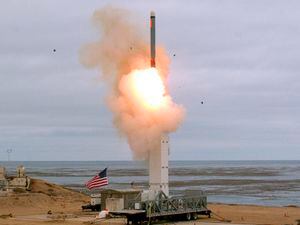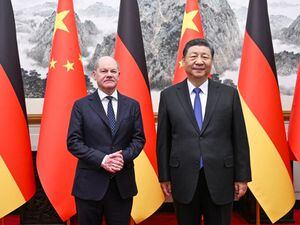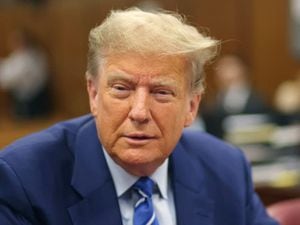Pentagon conducts first test of previously banned missile
The test off the coast of California marked the resumption of an arms competition that some analysts worry could increase tensions with Russia.

The US military has conducted a flight test of a type of missile banned for more than 30 years by a treaty that the US and Russia abandoned this month, the Pentagon said.
The test off the coast of California on Sunday marked the resumption of an arms competition that some analysts worry could increase US-Russian tensions.
The Trump administration has said it remains interested in useful arms control but questions Moscow’s willingness to adhere to its treaty commitments.

Defence officials had said last March that this missile likely would have a range of about 1,000 kilometres (620 miles) and that it might be ready for deployment within 18 months.
The missile would have violated the Intermediate-range Nuclear Forces (INF) Treaty of 1987, which banned all types of missiles with ranges between 500 kilometres (310 miles) and 5,500 kilometres (3,410 miles).
The US and Russia withdrew from the treaty on August 2, prompted by what the administration said was Russia’s unwillingness to stop violating the treaty’s terms. Moscow accused the US of violating the agreement.
The newly tested cruise missile recalls a nuclear-armed US weapon that was deployed in several European Nato countries in the 1980s, along with Pershing 2 ground-based ballistic missiles, in response to a buildup of Soviet SS-20 missiles targeting western Europe.
With the signing of the treaty, those missiles were withdrawn and destroyed.
In addition to the land variant of the Tomahawk cruise missile, the Pentagon has said it also intends to begin testing, probably before the end of this year, an INF-range ballistic missile with a range of roughly 3,000 to 4,000 kilometres (1,864 to 2,485 miles). Both missiles are to be non-nuclear.

He also disputed the notion that abandoning the INF treaty will spark an arms race.
“I don’t see an arms race happening here,” he told reporters on the day Washington and Moscow withdrew from the treaty.
“Russia has been racing, if anybody, to develop these systems in violation of the treaty, not us.”





